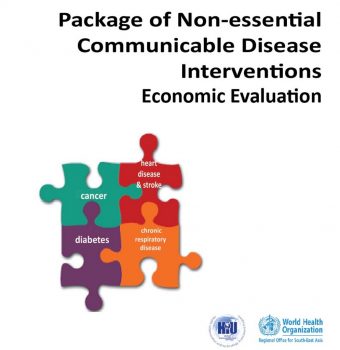Package of Essential Non-communicable Disease Interventions Economic Evaluation (PEN EE)
Summary
There is a considerable demand for evidence-based policy development on prevention and control of NCDs in Indonesia. The increasingly aging population and unhealthy lifestyles, coupled with an increased investment in healthcare by the government of Indonesia’s new commitment to the UHC, have stimulated this demand. As the PEN disease interventions has been recognized as a cost-effective set of interventions for LMICs to deal with the high prevalence as well as high morbidity and mortality of NCDs, Indonesia’s MOH promptly incorporated the PEN interventions into its public health service at primary care level since 2011.
The PEN interventions were incorporated in the MOH comprehensive NCD program. With the emphasis on community engagement, Posbindu, which is the community-based awareness, monitoring, and screening activity for diabetes and hypertension, has been introduced and implemented by trained village health volunteers called kader. For those with positive screening, they are referred to the primary health care centre or Puskesmas for diagnosis and proper treatment. This arrangement allows the PEN intervention to be implemented throughout the country where there are large variations of available human resource.
After three years of policy implementation, there are some concerns regarding the effectiveness and impact of the program implementation. The MOH, with the support of the WHO, is planning to evaluate this effort and invited HITAP to be involved to ensure that the evaluation provides a comprehensive result that will improve technical efficiencies and raise political and public awareness of the NCD prevention and control program in Indonesia.
Project’s aims
The HIU is to provide technical support to Indonesia’s HTA agency in conducting the PEN economic evaluation.
Project’s output
- Technical report for dissemination to the stakeholders. This report is to include a budget impact analysis (BIA) of the policy options examined in the economic evaluation in order to better outline the impact of these policies.
- Policy Brief, to be translated into bahasa Indonesia to present the findings to all relevant stakeholders.
Academic Publication: One Step Back, Two Steps Forward: An Economic Evaluation of the PEN Program in Indonesia




